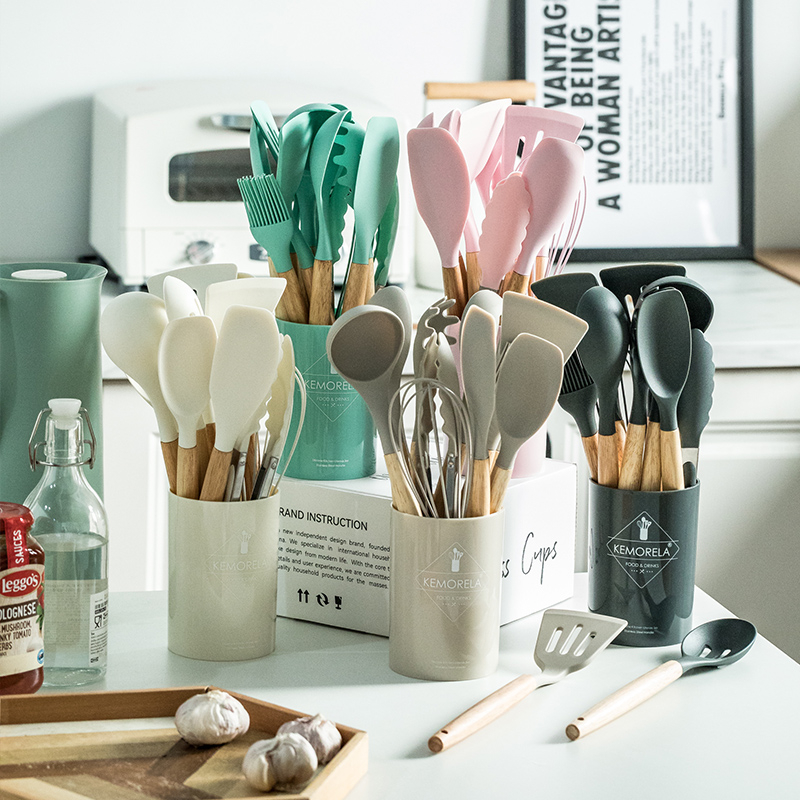86-592-5659128 (to8016)
anna@xmydx.com86-592-5659128 (to8016)
anna@xmydx.com
2025-04-07 17:58:14
Silicone cooking utensils are popular for their heat resistance and flexibility, but many home chefs wonder: Are silicone cooking utensils healthy? The answer depends on the quality of the silicone used. High-quality, food-grade silicone is a safe and durable choice for kitchens, while cheap alternatives may pose risks. In this article, we’ll explore silicone’s safety, compare it to traditional materials, and share tips for choosing non-toxic tools.

Food-grade silicone is inert, non-toxic, and offers these safety advantages:
✅ Heat Resistance: Withstands temperatures up to 428°F (220°C) without melting or releasing fumes.
✅ Non-Reactive: Doesn’t leach chemicals into food, unlike plastics or scratched non-stick coatings.
✅ Easy Cleanup: Resists stains and odors, preventing bacterial buildup.
Image Suggestion: Assorted silicone utensils (spatula, tongs, brush) in use on a stove.
Alt Text: “Food-grade silicone cooking utensils for safe meal prep.”

| Material | Heat Resistance | Durability | Safety Risks |
|---|---|---|---|
| Silicоне | Up to 428°F | High | None (if food-grade) |
| Plastic | Low (<250°F) | Low | BPA/phthalate leakage |
| Wood | Moderate | Moderate | Bacterial growth |
| Metal | High | High | Scratches cookware |
Image Suggestion: A split image comparing silicone vs. plastic/metal utensils.
Alt Text: “Silicone vs. plastic cooking tool safety.”
![]()
Fact: Pure silicone is chemically stable and non-toxic below 428°F. Studies by the FDA confirm its safety for food contact.
Fact: Food-grade silicone withstands boiling water, ovens, and stovetop cooking. Always check the temperature rating!
Fact: While recycling options are limited, high-quality silicone lasts for years, reducing waste.

Image Suggestion: Close-up of a utensil with FDA certification marks.
Alt Text: “FDA-certified silicone kitchen utensils.”
![]()
As a leading silicone product manufacturer, we guarantee:
Call-to-Action: Upgrade your kitchen safely – Shop Silicone Utensils or Request a Sample Kit.
© 2016 XIAMEN YIDEXIN SILICONE RUBBER INDUSTRIAL CO.,LTD All Rights Reserved dyyseo.com
Online Contact
 86-592-5659128 (to8016)
86-592-5659128 (to8016) anna@xmydx.com
anna@xmydx.com sallyliao1985
sallyliao1985 xmydx02
xmydx02 +86-13606037597
+86-13606037597top